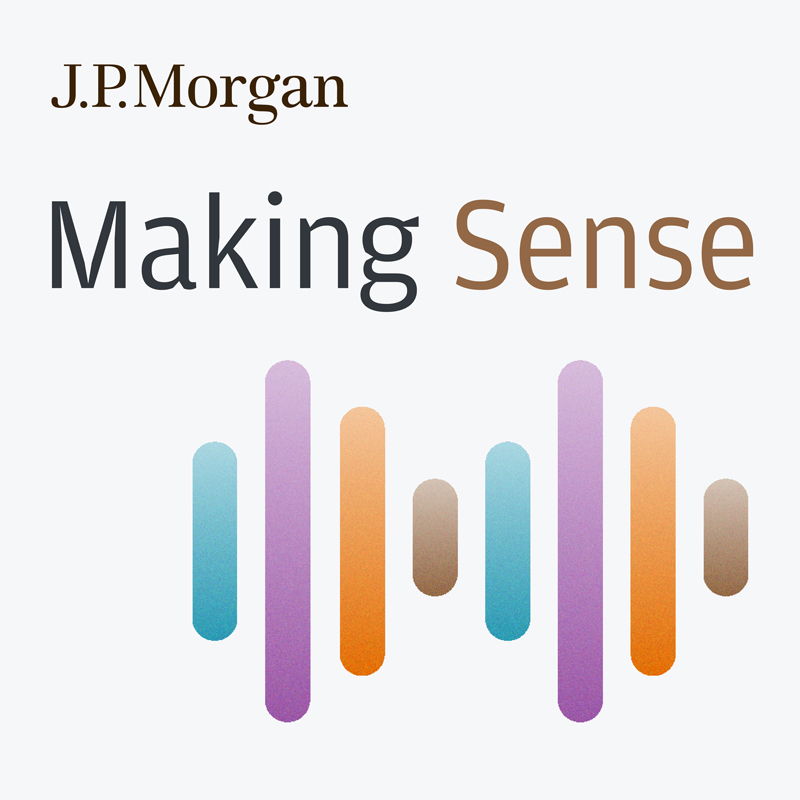[Music]
Introducing the Impact Disclosure Taskforce at COP28
Arsalan Mahtafar: The good news is that the volume of capital managed by sustainable investors that are seeking sustainable outcomes are continuing to grow. But at the same time, achieving the sustainable development goals and financing the sustainable development goals still remain out of reach.
So this panel will unpack this problem and introduce the Impact Disclosure Task Force, an initiative launched by a network of financial institutions to leverage the principles of impact measurement and monitoring to direct sustainable capital to where it's needed most.
John Murton: There is finance flowing towards sustainable finance, but it's primarily flowing to climate-related goals, and it's primarily flowing to developed markets, rather than emerging markets. It's much easier, for a range of reasons, to finance a solar power plant in France than it is in India, which is unfortunate, in climate terms, because the solar power plant in India will displace much more carbon than the solar power plant in France.
It's much easier to finance a solar power plant in India than it is to finance a social development project. Part of that is due to the data that's available. It's much easier to prove the impact in, say, emissions avoided for a solar power plant than it is for a water project that might serve a rural community in a developing market.
So as a result, with the lack of data, it's difficult to bring capital in. It's difficult to bring investment in to maybe where it's required most. And it's only by scaling that private sector investment, not just in solar plants in India, but in water projects, in projects to conserve biodiversity, that we're going to deliver on the development goals.
Adam Mariko: The SDG gap is quite huge. And I think the problem should not be just to call for more money. It's to change the financial system to reorient the existing money somehow to SDGs finance and sustainable finance.
John Murton: It's a network of public and private financial institutions, and capital market participants, and industry stakeholders. And what they're doing is they're drafting voluntary guidance for entity-level disclosure, so disclosure at a corporate entity level, about impact and giving us mechanisms to facilitate impact reporting across an entity and data provision so that we can then deliver financing against that.
What it will do is it will deliver, hopefully, forward-looking targets that address development gaps. So a company, an entity will develop forward-looking targets that address development gaps and are specific to their context and the markets that they operate in, which means they're going to be different in Bangladesh than in Bolivia or in Brussels. And that's really important.
And they will establish mechanisms to disseminate and analyze that entity-level impact information into digestible bites so that it will foster accountability and transparency so that investors and people considering investments will be able to understand that information and invest on the basis of it. And that gives financial institutions and decision-makers more capacity to identify where their finance, where their money will have a real impact and allocate accordingly.
Bertrand Millot: There's four things that we would look at. We would look at trying to identify intentions. Impact-- the difference between the two is intentions. It's really, really important to understand that. What are we trying to change in the world? And obviously, it has to be looked at in the context of what the problems are related to your industry or the place where you're doing business.
And then you think, OK, well, set targets. How am I going to change that? And then make sure that, obviously, you measure it, and you disclose what you intend to do, and you look at progress going forward. So that's really the difference between the two.
Ayla Bajwa: We're an end-to-end logistics solution provider. And so one of our key pillars is-- or key verticals are ports, as mentioned earlier, so ports and terminals. And so the port and terminal space is interesting because your customer is often a government. And so governments ask you, what are you going to do for my country?
And so when that becomes the question, you no longer are a project investor, as mentioned while talking about the impact disclosure framework. You're an ecosystem investor. And so when you're an ecosystem investor, you're not looking at just the asset.
You're looking at, yes, spillage, waste management, and all the rest of it, but you're also looking at coastal systems. You're looking at people positive. You're looking at nature positive. You're really looking at the full gamut. And so, today, as DP World, we are-- so I think one good example of a market that we've done this well is Berbera. So, in fact, we have a documentary that was released just a couple of hours ago that we've done with The Wall Street Journal, but it really brings what we do to life, which is we look at employment. We look at the needs of the country from an education point of view, from a from a water access point of view, and so all of it guided by something we call the "our world, our future" strategy.
And so the "our world, our future" strategy is our sustainability strategy. But if you look at the framework, it has business priorities. So we have identified business priorities and community contributions-- what we call community investment-- because we're there for the long run.
So often, the investors or other stakeholders are nervous because they need short-term return. And as DP World, we're in it for the long haul. We get it. You're going to go into the Global South? It's going to take time.
And so what actually has been positive to see-- and Berbera continues to be a good example for it-- is because we had faith in Berbera, and we invested in Berbera, and we looked at the poor-- the economic zone, the water access, the education, all of it looking, now at coral and reef restoration, the full situation, now we see other entities having the confidence to invest in Berbera.
Erin Leonard: The good news is that we do see very strong growth in sustainable investment. You may not read about that in the newspapers every day, but our own sustainable investments have grown from 1%, I think just three to four years ago, to about 10% of our total assets. So it's increasingly in focus for us.
And as part of our mission-- obviously, we're investing for returns. We're investing for our investors. But we do want to create products that are supporting the emerging economies and that are facilitating the flow of capital to the projects and the businesses that really need the money. So that's the part that makes me enjoy my job the most, I would like to say.
But back to complexity, we manage money across, I think, 12 different locations currently. We hold over 30,000 securities. So access to information and data is absolutely one of our biggest challenges.
And so initiatives like this that are going to facilitate the provision of information are absolutely critical to our day-to-day activities. And so we want to see this type of activity really take hold and become widely accepted through the industry.
I mean, it's as simple as the fact that, if we can't get sustainability information on an issuer, we are not going to invest because we just don't have the transparency. So it really is tied directly to the flow of capital.
Adam Mariko: We were very proud, in AFD, to join the task force and this discussion because, if private sector goes in this discussion alone, building norms in their own will, I think there is a faith and will to do it, but no one will believe it, somehow, because there is always this risk on saying, OK, where is the catch?
That's why, also, the public development banks and all the work and the data we are accumulating is useful to put it in the public good. And that's why AFD have pushed, also, to be there. At some point, mobilizing private capital is not just at the project level. Even the funding that we are using-- I come from the finance business of the of the bank. We issue 10 billion euro bonds every year.
And our goal is, within two years, to certify all our balance sheet SDG-aligned, which, I hope, will avoid us to justify every bonds with the reporting that goes with it. At some point, the investor should understand that investing in this balance sheet has incentive for them, and it's an aligned investment they are doing, which means we should have clear norms and data on all those perspectives.
Erin Leonard: Our approach is that we would much rather engage with companies than divest. We want to work with companies to understand their practices, understand their challenges. We like to think that we can also help companies with their transition plans by maybe giving information on other practices that we see going on in the marketplace. So with information, we're better empowered to engage.
Bertrand Millot: By pushing companies to do the right thing is how things are going to change. We can't do it ourselves. We invest in companies. And so it is a very, very important aspect.
There's different ways to do it, depending on which kind of company you invest in. You should-- you have the obligation to actually vote on the annual general meeting. And for example, if you take climate as an example, we have a well-articulated strategy to engage the company to discuss with them what they're up to, and then if we're not happy, to potentially raise that to a more senior level, chair of the board.
If we continue not to be happy, we can actually submit a shareholder proposal in a formal process, which will then be subject to a vote. And then, in the end, there is always the option of voting against the board directors who are in charge of sustainability, for example.
Ayla Bajwa: Today, a lot of our investment that we're talking about and that will feed into these impact metrics is because we have a multi-stakeholder engagement approach. But I will tell you, if we had a tunnel-vision investor approach, we would not be incentivized today to be investing in education, or water, or any of this. So help us out. We really want to. But if you don't hold us to task, then it's going to be difficult for us to get it over the line internally.
Erin Leonard: Very important, but I think we also have to recognize that, in the emerging markets, adding extra layers of cost associated with verification schemes is a big ask. And the way that we, as asset managers, look at it-- of course, if we've got a third-party verification, that makes our lives easier, cleaner. We can probably do a little bit less homework ourselves.
But we do also value self-certification with companies that have the good governance, that have proper risk management frameworks and assurance frameworks, et cetera. And I believe I'm right about this-- that even MSCI, in terms of the data that they bring in, they actually will reference where data coming in is third-party-verified or self-assured.
Those factor into our scoring models. So again, higher score if you have third-party verification, but your company will be considered if it is self-assured.
[End of video]










